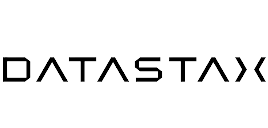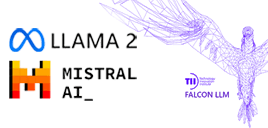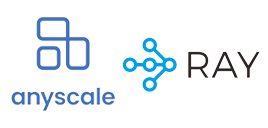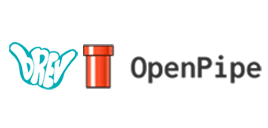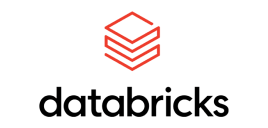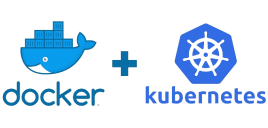Engineering Services
Reema AI is an elite software engineering services firm. We deliver world-class Gen AI Engineering services, and traditional Full-Stack Engineering services, for Enterprise, Unicorn, and Startup companies through the following engagement models:
Our Engineer Types
Gen AI Engineers
Our Gen AI Engineers are specialists with a traditional senior full-stack engineering background who have been trained in advanced use of Gen AI technologies and modern Gen AI best practices. Our Gen AI Engineers are experts across all layers of the Gen AI tech stack, including AI Application Frameworks, Large Language Model (LLM) Prompt Engineering, Vector DBs & Embeddings, LLM Fine-Tuning & Evals, LLMOps, and more.
Full-Stack Engineers
Our "AI Enhanced" Full-Stack Engineers are world-class senior software engineers capable of building modern technology from the ground up across all layers of the stack. To maximize productivity, all of our engineers leverage modern "AI Enhancement" best practices and tools such as Github Copilot (or other CodeGen tools), leveraging SOTA LLMs when researching solutions, and even leveraging Gen AI to become better communicators.
Engagement Models
Reema AI Outsourcing
Reema AI provides a best-practices software outsourcing service, so you can confidently deploy us on a project-by-project bases to build your Traditional Full-Stack or Gen AI technology, products, and software.
We take project outsourcing incredibly seriously at Reema AI. Before entering into an outsourcing engagement to build your AI project, we will consult closely — but rapidly — with you to define the scope of your project in strong detail. Thorough upfront project definition gives you certainty of ultimate successful delivery — before a contract is signed — and allows us to deliver your project at the highest possible quality.
Our Outsourcing Process
Discovery Call
We'll discuss your high-level needs, budget, timelines, and give an overview of Reema AI's best-practices outsourcing process
Project Scoping Iteration
We'll work quickly with your project stakeholders to define the scope of your project in concrete detail, as well as the high-level roadmap that determines milestones and path to completion
Validation & Approval
Once project scoping has finalized, we'll draw up a contractual Statement of Work that defines the outsourcing engagement in detail for your ultimate review
Execution
After contract is signed, we assign a project manager and team to your project and begin delivery. We stay in close communication with your stakeholders, with scheduled check-ins to ensure everything is on track.
Reema AI Staff-Augmentation
Reema AI provides a seamless staff-augmentation service, embedding our elite full-remote Gen AI Engineers or Traditional Full-Stack Engineers directly into your existing agile teams.
Our Engineers fully integrate into your communication channels, engineering process, stand-ups, meetings, and work your office hours. We work closely alongside your team-members and are directed by your project management or engineering leadership.
Example Staff-Augmented Engineering Team

Your Project Manager

Reema Gen AI Engineer

Reema Full-Stack Software Engineer

Your Software Engineer
Reema AI Dedicated Teams
Reema AI Dedicated Team engagements allow you to spin up an entire Agile Engineering team within your larger organization.
Typically a Reema AI Dedicated Team is directed by your internal leadership, such as a VP of Engineering or a Product Leader (sometimes both). We often include an Agile Project Manager as part of the Dedicated Team to eliminate operational burden for your executive who directs your Dedicated Agile Engineering Team. However we are happy for the team to interface with your internal PM as well.
Our Dedicated Teams collaborate seamlessly with your broader organization. We are praised for our proactive cross-team communications, and we are happy to merge your internal resources into your Reema AI Dedicated Team as you see fit (we'll mentor them too!).
Example of Dedicated Engineering Team Integrated into Your Tech Department

Your VP of Eng.

Reema AI Dedicated Team

Your Platform Team

Your Mobile Team
Reema AI Outsourcing
Reema AI provides a best-practices software outsourcing service, so you can confidently deploy us on a project-by-project bases to build your Traditional Full-Stack or Gen AI technology, products, and software.
We take project outsourcing incredibly seriously at Reema AI. Before entering into an outsourcing engagement to build your AI project, we will consult closely — but rapidly — with you to define the scope of your project in strong detail. Thorough upfront project definition gives you certainty of ultimate successful delivery — before a contract is signed — and allows us to deliver your project at the highest possible quality.
Our Outsourcing Process
Discovery Call
We'll discuss your high-level needs, budget, timelines, and give an overview of Reema AI's best-practices outsourcing process
Project Scoping Iteration
We'll work quickly with your project stakeholders to define the scope of your project in concrete detail, as well as the high-level roadmap that determines milestones and path to completion
Validation & Approval
Once project scoping has finalized, we'll draw up a contractual Statement of Work that defines the outsourcing engagement in detail for your ultimate review
Execution
After contract is signed, we assign a project manager and team to your project and begin delivery. We stay in close communication with your stakeholders, with scheduled check-ins to ensure everything is on track.
Reema AI Staff-Augmentation
Reema AI provides a seamless staff-augmentation service, embedding our elite full-remote Gen AI Engineers or Traditional Full-Stack Engineers directly into your existing agile teams.
Our Engineers fully integrate into your communication channels, engineering process, stand-ups, meetings, and work your office hours. We work closely alongside your team-members and are directed by your project management or engineering leadership.
Put simply — our embedded engineers function the same as any other member of your in-house team, we operate in a flexible and stratigic capacity.
Example Staff-Augmented Engineering Team

Your Project Manager

Reema Gen AI Engineer

Reema Full-Stack Software Engineer

Your Software Engineer
Reema AI Dedicated Teams
Reema AI Dedicated Team engagements allow you to spin up an entire Agile Engineering team within your larger organization.
Typically a Reema AI Dedicated Team is directed by your internal leadership, such as a VP of Engineering or a Product Leader (sometimes both). We often include an Agile Project Manager as part of the Dedicated Team to eliminate operational burden for your executive who directs your Dedicated Agile Engineering Team. However we are happy for the team to interface with your internal PM as well.
Our Dedicated Teams collaborate seamlessly with your broader organization. We are praised for our proactive cross-team communications, and we are happy to merge your internal resources into your Reema AI Dedicated Team as you see fit (we'll mentor them too!).
Example of Dedicated Engineering Team Integrated into Your Tech Department

Your VP of Engineering

Reema AI Dedicated Team

Your Platform Engineering Team

Your Mobile Engineering Team

